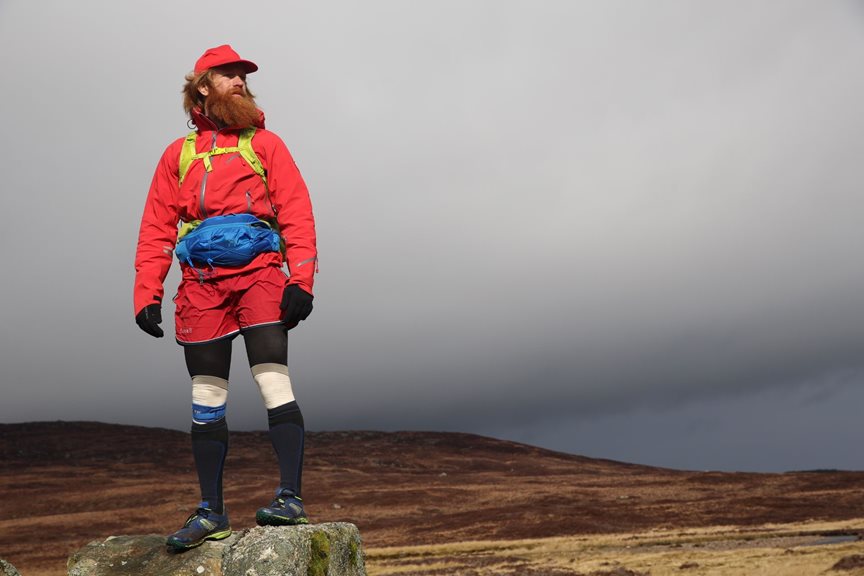Last updated: 17-Jan-19
By Renee McGregor
A new year is within throwing distance, which means we are going to be inundated with messages and headlines about the latest food and wellness trends, all promising how you can be the fittest, healthiest and happiest version of you.
In all honesty though, do we really need a “fresh start” every January? Is this even the most sensible time. Just because it’s the start of the year, why does it automatically translate as being when we are at the peak of our motivation? Or, is this just something we are sold every year so that the multi-million wellness industry can profit?
In my opinion, January is usually the worst time to start anything drastic. Let’s face it, the holiday festivities have probably left most of us feeling a little off kilter. We have probably all been eating and drinking a little too much and the lack of routine can also result in reduced productivity. On the upside, it’s an opportunity to stop, take stock and create happy memories and associations with family and friends. So, the festive season is an important aspect of a balanced life, but perhaps not the optimal precursor to embracing a strict new diet and fitness regimen.
While I’m not saying for one minute we shouldn’t get back into good routines and healthful processes, I suggest a more “phased return” rather than “Bull in a china shop” method. Pushing yourself too hard too quickly will lead to unnecessary stress, potentially leading to negative behaviours and a further decrease in motivation.
So, before you go all hammer and tongs at breaking the post festive merry go round, remember that no-one is immune to motivational declines. Even the most determined and dedicated athletes I have worked with have times when staying on track with nutrition and training can become a real effort.
While a decline in motivation may be inevitable, there are still some processes that can be put in place that can help prevent recurrent episodes. These include having a fundamental understanding of the following.
- Self-awareness
- Managing expectations
- Self-compassion
- Social comparison
Managing your lifestyle and being self-aware can be pivotal in preventing a lapse in training or blip in your nutrition.
Often when we overload our lives, we become stressed, fraught and overwhelmed. We try to balance family life with work and training commitments. Many of us have the inability to understand when we are reaching our limits, taking on more and more. We are unable to demonstrate self-compassion; yet if a friend is in need, struggling with having taken too much on, we will be the first to offer help and advice.
So, why do we struggle to allow ourselves anytime off the hook? In fact, more to the point, why do we berate ourselves when our body and mind doesn’t want to play ball?
What would actually happen if you eased your foot off the pedal just a little? Would everything really unravel and fall apart?
Becoming more self-aware and understanding just how much you can cope with, is a key part of keeping on top of motivation, whether at work, in training or when maintaining relationships. While it may sound a little extreme, actually assigning time to work, training, family and relationship can be a very powerful way of not feeling overloaded.
How many of you have gone into a training session, stressed out from a work meeting, only to find that this negative emotion affects your performance? Similarly, how many of you have put so much pressure on yourself within a particular training session which doesn’t go to plan, only for you to take this out on your partner?
Being able to allocate time to each of the areas of your life and ensure sufficient “recovery” time between each, can be a really useful form of stress management. This may simply be a case of sitting in the car for five minutes when you get home before going into the house. Use this time to switch mindset, leaving work at work and turning your attention to your family.
Planning is not just about making time, it’s also about saving time. Many of us feel the pressure to put on a gourmet meal every night –we hear so much in the media about “healthy eating” – but can take this to extreme. Remember healthy eating is actually about the balance over 7-10 days.
So if on some days, you don’t have the energy or time to cook a full meal, don’t beat yourself up about providing something simple such as eggs on toast, or a baked potato with tuna salad. Both of these are nutrient dense and have the main building blocks needed for a balanced diet.
Taking some time to be organised, becoming more self-aware and understanding what are appropriate food choices to make around your daily life will help in several ways. Firstly, it will reduce stress as you will have a vague plan of what you are going to prepare daily. This in turn will ensure that you eat regularly and thus prevent fluctuating sugar levels which often result in poor energy levels and concentration.
When we feel tired, our motivation wanes. Finally, by adopting this approach, you will also notice that you automatically revert back to a more balanced and sensible approach to eating, making it a lot easier to maintain.
Here are some ways to help you manage your load:
- Slow cooker or soup maker: these are a great investment as you can pretty much put anything that is in the fridge or store cupboard in, set the timer and press on for a meal to come home to.
- Think about your training for the week: when are you doing the harder sessions and how are you going to ensure that you fuel correctly prior to them? By identifying when these sessions are going to be, you can plan to take suitable snacks to work with you, as well as prepare appropriate meals in advance. This will stop you coming home after a hard track session and raiding the fridge.
- Remember that on higher intensity training days, you will need to build your carbohydrate intake during the 24-36 hours prior, in order to ensure that you have full glycogen stores. Only then will you have sufficient energy to maintain the high pace of a hard session. When we don’t have sufficient fuel in our system, we cannot hit those paces.
- Always have store cupboard ingredients: my go to foods tend to be frozen fruit and vegetables, eggs, potatoes, tinned beans, pulses, and tomatoes, rice or quinoa and Greek yoghurt. This means that even when the cupboards are bare, I always have some items around for a Spanish omelette, or a bean stew/chilli with quinoa, followed by Greek yoghurt and frozen fruit.
- When time is short, doing your food shop online is a really useful tool. Once you’ve done it the first time, it takes no time at all to do it the next time. This way you can plan your meals and choose food items appropriately.
- The key to healthy eating is not to deprive yourself. Don’t follow fads that can leave you feeling like you are missing out, as well as low in energy. The key is to keep meals balanced and colorful. Nothing should be off limits, but be mindful of portion sizes of certain foods and frequency of eating them.
- Don’t compare: most of us have a love, hate relationship with social media. More and more studies are finding that it has a negative impact on mental health. We find ourselves socially comparing ourselves to everyone we follow. While it may not always be conscious, this can drip feed into our psyche and start to affect how we view ourselves. How come they can work a full time job, train 20 hours a week and have time for family? It makes us feel inadequate and thus feeds into our desire to prove we are good enough.
- The thing you have to remember about social media is that it is rarely real. Most people will only post when life is going well. You also need to ask yourself, why do I need to compare? Fundamentally we are all unique, this is actually what makes us human. Comparing yourself to another is futile because there is no-one who is going to have the exact same genetic and lifestyle make up as you. There really is no ideal as rarely are two human beings the same, with the exception of identical twins.
- And finally don’t forget to be kind to yourself. Even if you do have a training session booked in, if you are tired or you just don’t feel like training, then take the day off. Or change what you are doing. Some mornings I wake and I just don’t feel ready to run; I’ve learnt that pushing through a session is not the answer. Listening to your body and understanding what it needs is. On these days, I just swap my morning run for morning yoga and a gentle walk. I still get the benefits but at a pace that is more suitable for me that particular day.
So, tune into your mental and physical needs and remember moderation – not extremes – is the key. Practice self-awareness and self-compassion for a healthier, happier 2018.





